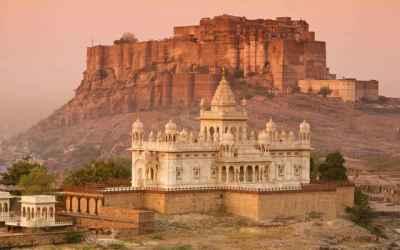An Introduction to Wildlife Conservation Efforts in Rajasthan
An Introduction to Wildlife Conservation Efforts in Rajasthan
Rajasthan, the land of kings, is undoubtedly renowned for its magnificent palaces, rich cultural heritage, and vibrant festivals. However, the state is also home to an impressive array of wildlife, making it a paradise for nature enthusiasts and wildlife conservationists alike. With its diverse ecosystems, Rajasthan supports numerous endangered species and plays a pivotal role in wildlife conservation efforts in India.
The Importance of Wildlife Conservation
Wildlife conservation is the preservation and protection of species, habitats, and ecosystems in order to maintain a healthy balance in nature. It is crucial for sustainable development, biodiversity preservation, and ecological stability. Rajasthan, with its unique geographical features and diverse flora and fauna, necessitates active conservation efforts to safeguard its natural heritage for future generations.
Rajasthan's Biodiversity
Rajasthan encompasses a wide range of ecosystems, from the arid Thar Desert in the west to the hilly regions of the Aravalli Range in the east. These varying landscapes support an incredible diversity of wildlife. The state is home to several critically endangered, endangered, and vulnerable species.
The Royal Bengal Tiger, once prevalent in the forests of Rajasthan, was declared extinct in the state in the 1970s. However, efforts are now underway to reintroduce these majestic creatures in the Sariska Tiger Reserve and the Ranthambore National Park. These reserves provide protected areas for the tigers to thrive and have witnessed successful breeding programs.
The Sariska Tiger Reserve, situated in the Alwar district, is spread over 866 square kilometers. It is not only home to tigers but also supports a variety of other wildlife such as leopards, sambar deer, chital, and various bird species. The Ranthambore National Park, located in Sawai Madhopur, is another famous tiger reserve in Rajasthan renowned for its thriving tiger population.
Another key wildlife conservation effort in Rajasthan is focused on the Great Indian Bustard, which is on the verge of extinction. The Desert National Park, a vast stretch of desert habitat located near Jaisalmer, is instrumental in protecting this critically endangered bird species. Efforts to conserve the Great Indian Bustard involve habitat management, anti-poaching measures, and awareness programs to educate the local population about the importance of this species.
Conservation Initiatives
Rajasthan government, along with various NGOs and wildlife organizations, has implemented several conservation initiatives to protect the state's wildlife and their habitats. These initiatives include:
- Creating Protected Areas: Rajasthan has established numerous protected areas, national parks, and wildlife sanctuaries to safeguard the biodiversity and provide a safe habitat for wildlife.
- Anti-Poaching Measures: Stringent laws and intensified anti-poaching efforts have been implemented to combat poaching and illegal wildlife trade.
- Ecotourism and Awareness: Encouraging responsible tourism and creating awareness among tourists and local communities about the importance of wildlife conservation helps generate support and participation in conservation efforts.
- Conservation Breeding: Breeding programs are carried out for endangered species, including the Royal Bengal Tiger and the Great Indian Bustard, to increase their populations and reintroduce them into the wild.
Conclusion
Rajasthan's commitment to wildlife conservation is commendable. With its diverse ecosystems and unique biodiversity, the state assumes a pivotal role in protecting endangered species and preserving their habitats. The efforts of the government, NGOs, and wildlife organizations are instrumental in ensuring the sustainability of Rajasthan's wildlife and maintaining a healthy ecological balance. It is imperative that we continue to support these conservation initiatives and spread awareness about the importance of wildlife conservation in Rajasthan, and beyond.
Share this post to spread the word about Rajasthan's remarkable wildlife conservation efforts!
Disclaimer : The information provided in this blog is for general informational purposes only. While we strive to keep the content accurate and updated, TravelSetu assumes no liability for errors or omissions. If you believe any part of this blog infringes your rights or causes concern, please notify us immediately at info[at]travelsetu[dot]com so that appropriate action can be taken.







